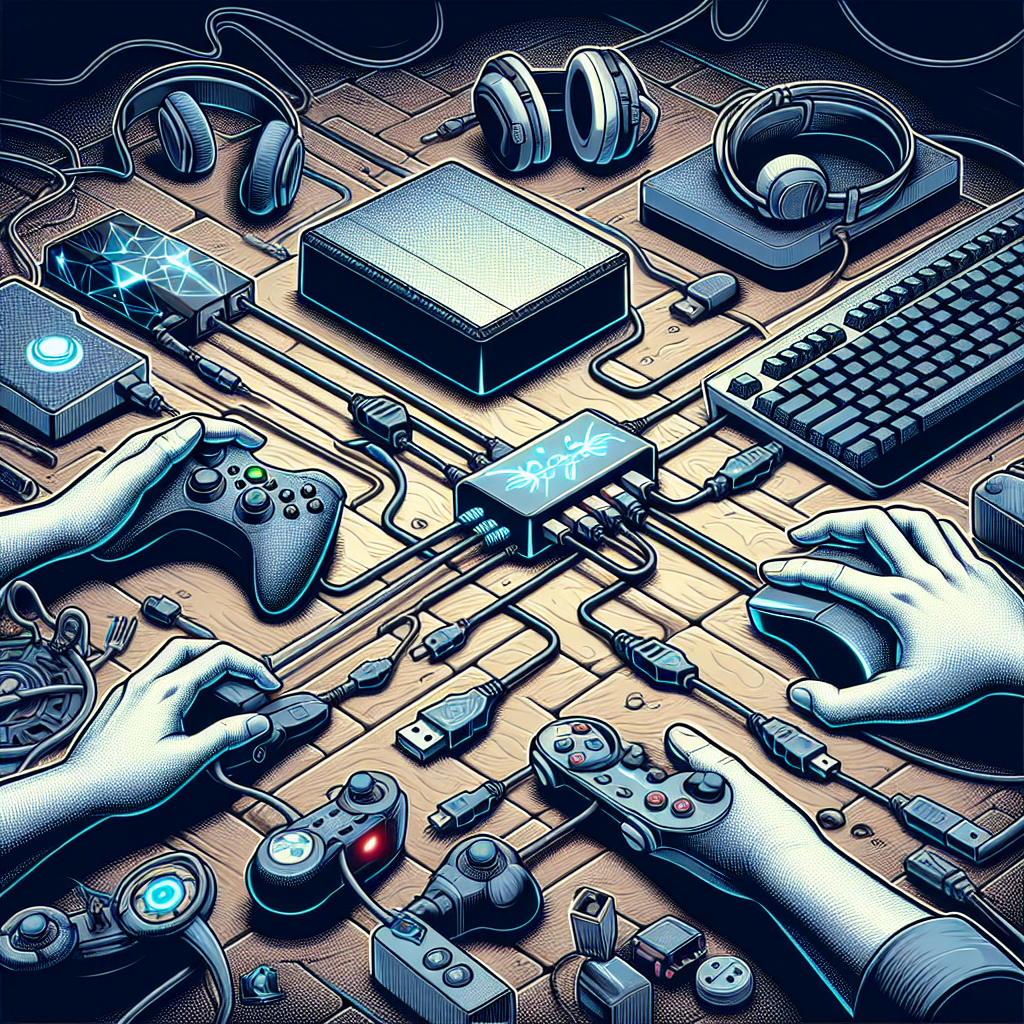How to Fix Intermittent Disconnection Issues with Gaming Peripherals on a USB Hub
Intermittent disconnection issues with gaming peripherals can be frustrating and detrimental to your gaming experience. Many gamers rely on USB hubs to connect multiple devices, but problems can arise due to various factors like power supply issues, cable quality, or hub compatibility. In this article, we will explore the common causes of these disconnection problems and provide effective solutions to help you enjoy uninterrupted gaming.
| Possible Causes | Impact | Solution |
|---|---|---|
| Inadequate power supply to the USB hub | Frequent device disconnection | Use a powered USB hub |
| Old or damaged USB cables | Transfer speed issues and device failure | Replace with high-quality cables |
| USB hub compatibility issues | Inconsistent performance | Verify compatibility with peripherals |
| Interference from other wireless devices | Connection drops and lag | Minimize interference sources |
| Poorly designed USB hub | Overheating and device failure | Choose a reputable brand |
Understanding USB Hubs
A USB hub is a device that allows you to connect multiple USB devices to a single USB port on your computer. While they can be incredibly useful, not all hubs are created equal. Cheap or poorly designed hubs can lead to performance issues, especially during intensive tasks like gaming.
Common Symptoms of Disconnection Issues
Before diving into solutions, it’s essential to identify whether you are experiencing intermittent disconnection issues. Some common symptoms include:
- Mouse cursor freezing or stuttering.
- Keyboard input lag or unresponsiveness.
- Audio dropouts on gaming headsets.
- Random disconnects and reconnects of USB devices.
Identifying the Problem
To effectively resolve intermittent disconnection issues, it’s crucial to identify the root cause. Here are steps to diagnose your setup:
1. Check Power Supply
If you are using a passive USB hub (one that does not have its own power adapter), it may not provide enough power for multiple devices, especially high-power ones like gaming mice and keyboards. This lack of power can lead to disconnection issues.
Solution:
Switch to a powered USB hub that has its own power supply. This will ensure that each connected device receives adequate power.
2. Inspect USB Cables
Worn-out or low-quality USB cables can cause connection issues. Frayed cables or those with broken connections can lead to intermittent disconnections.
Solution:
Replace any damaged cables with high-quality ones that are rated for the required data transfer speeds.
3. Verify Hub and Device Compatibility
Some USB hubs may not be fully compatible with all gaming peripherals. Check the specifications of your hub and devices to ensure they work seamlessly together.
Solution:
Consult the manufacturer’s documentation to ensure compatibility or consider upgrading to a newer hub that supports your peripherals.
4. Minimize Wireless Interference
Wireless devices, such as Bluetooth accessories, can interfere with USB signals. If you notice disconnection issues when using wireless peripherals, this may be the cause.
Solution:
Move other wireless devices away from your USB hub and inspect the proximity of your hub to other electronic devices that may cause interference.
5. Evaluate Hub Quality
Not all USB hubs are of equal quality. Low-end hubs may have inferior components that can cause overheating or performance issues, leading to frequent disconnections.
Solution:
Invest in a reputable brand that is known for producing durable and high-performing USB hubs.
Optimizing System Settings
Sometimes, disconnections may stem from system settings or software issues rather than hardware problems. Here are some tips to optimize your setup:
1. Update Drivers
Outdated drivers can lead to connectivity issues. Regularly update the drivers for your USB ports and gaming peripherals.
Solution:
Visit the manufacturer’s website for each device and download the latest drivers. You can also use Windows Update for general USB driver updates.
2. Disable USB Selective Suspend
The USB selective suspend feature saves power by allowing the hub to disable devices that are not in use. However, this can lead to disconnects with gaming peripherals.
Solution:
Disable this feature by navigating to Power Options in your Control Panel. Under the USB settings, set USB selective suspend setting to Disabled.
3. Adjust Power Management Settings
Sometimes, power management settings can interfere with USB performance. Disabling power-saving features for USB ports can resolve these issues.
Solution:
Open Device Manager, find your USB Controllers, right-click on each USB Root Hub, choose Properties, then uncheck the box for “Allow the computer to turn off this device to save power.”
Testing Your Setup
After implementing the possible solutions, testing your setup is crucial to ensure that the issues have been adequately resolved. Here’s how to effectively conduct testing:
1. Conduct a Device Check
Reconnect your gaming peripherals one at a time to the USB hub while monitoring performance. Take note if any particular device seems to cause issues.
2. Monitor Performance During Gameplay
Launch a game and observe if disconnections occur during play. Engaging in action-intensive gaming sessions can reveal if your setup is stable.
3. Keep a Log
Document any recurring issues, such as specific times or actions when disconnections occur, to narrow down potential causes.
Conclusion
Intermittent disconnection issues with gaming peripherals connected to a USB hub can disrupt your gaming experience, but by following the steps outlined in this article, you can effectively troubleshoot and resolve these problems. From ensuring adequate power supply and cable quality to adjusting system settings, these solutions will help optimize your gaming setup. With the right tools and knowledge, you can enjoy a smooth and uninterrupted gaming experience. Happy gaming!

